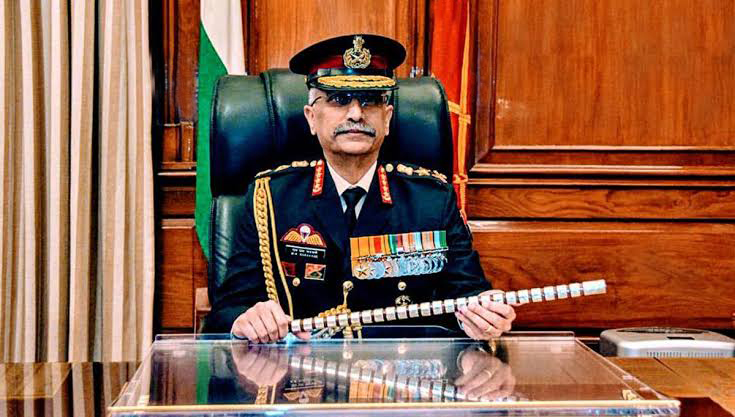
New Delhi. Army Chief General Manoj Mukund Naravane has said that the appointment of General Bipin Rawat as the Chief of Defence Staff (CDS) was a necessity in ensuring synergy between the defence forces in requirements and cutting redundancies, while calling Pakistan’s bluff on nuclear weapons saying they were only a “good deterrence.”
Speaking here on January three, he said the army’s new war fighting concept of Integrated Battle Groups (IBGs) will help in creating theatre commands.
He pointed out that there have been two to three occasions where India has carried out operations against the neighbouring country without the ‘nuclear portion’ coming into play.
General Naravane said that there is no politicisation of the defence forces, which have been apolitical. Asked whether it was the army’s mandate to be called in to build civilian bridges like it did at the Elphinstone Road railway station in Mumbai in February 2018, he explained that the army is “of the people and for the people” and there is nothing wrong in it.There was widespread criticism of the army being called in for this task.
The Army Chief said there is scope of decreasing ceremonial activities and there is a need to be more preferential on the army’s approach towards such events. He added that ceremonial activities should be done only on occasions such as Army Day and investiture and not on routine visit.
He said the hierarchy of the three services agree on this and these remarks come after the CDS during his first meeting passed directions to cut ‘infructuous’ ceremonial activities, which are manpower intensive.
Elaborating on IBGs, he said they were required to bring in operational efficiency because of the changes that have happened in technology. He said the positive spin offs are reduction in the army’s overall strength and better utilisation of funds. He said that conversion of corps sized formations to IBGs will take some time, as units will have to be relocated and officers to be posted there. This transition is expected to happen over one and a half years. He explained that the initial report of the IBG exercise, Him Vijay, of the 17 Mountain Strike Corps in Arunachal Pradesh in October last year was “encouraging”. A lesson learnt was the need for better communications.
Naravane said although the Jaish-e-Mohammed terrorist camp in Balakot has been ‘reactivated’, it was destroyed in the Indian aerial strikes in February last year. He said the strikes signal that terrorist camps and infrastructure can be taken down and cannot operate with impunity.
Naravane said force is aware of the changing locations of terrorist camps, the number of people there and can distinguish them from the villagers around whom they take shelter. There are about 25 launch pads across the border in Pakistan and close to 250 terrorists, several of them foreigners, are trying to infiltrate every day into India.
Naravane also said peace has prevailed in Jammu and Kashmir following the abrogation of Article 370 on August 5 last year. On the disputed border with China, he said India has to be firm in its resolve and assertive to its legitimate claims. He said this does not mean being aggressive and creating new friction points.
He said while the Army keeps reviewing its tactics and deployments along the Line of Actual Control with China, the combination of infrastructure development, surveillance and reserves will ensure that the border is secure.
When asked where have the Balakot air strikes placed the nuclear threshold between India and Pakistan, Naravane said, “Historically, nuclear weapons are a good deterrence. That is where their role ends… On two to three occasions we have carried out operations without the nuclear portion coming into play.”
On being asked whether the Balakot terrorist facility has been reactivated and whether the strikes achieved any good results, he said, “Definitely they have achieved a lot. During war time when you attack a facility it is always reconstructed. Similarly, we destroyed that camp, but over months they have reactivated it. To say that we didn’t achieve anything as a result of the strikes is not correct. Destruction happened.
The important point is that it has signalled that terrorist camps, infrastructure and launch pads can be taken down and cannot operate with impunity. It is a big message, as a result there will be some restraint,” he said.









